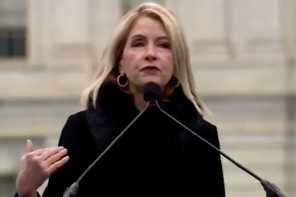Sam Harris says he’s worried.
In a carefully-worded New York Times op-ed last Sunday , Harris, author of The End of Faith expresses his concerns with President Obama’s nomination of Francis Collins to head the National Institutes of Health (NIH). Ironic. Ironic, because Harris, founder of the Reason Project (designed to spread secular values and scientific knowledge), is being unreasonable.
The NIH matters because with a vast budget in the tens of billions, it’s the largest funder of science research and clinical trials in the world.
Harris is worried because Collins is a Christian and openly discusses this, most notably in his book The Language of God. In it, Collins argues that religion, specifically Christianity, can harmoniously coexist with science.
Harris points out that Collins believes there is much more to humans and humanity (souls and morals and such) than can be explained by science alone. According to Harris, such beliefs are bad—or at least problematic. He ends his piece with this question:
Must we really entrust the future of the biomedical research in the United States to a man who sincerely believes that a scientific understanding of human nature is impossible?
My response to Harris (setting aside all the important semantic challenges of what “human nature” actually means, and the fact that I’m not really sure Collins would fully agree with Harris’ summary of his ideas), my response is that Collins is the perfect person to lead the NIH.
First of all, and most importantly, (as Harris himself points out), Collins is a well-known and well-respected scientist, who among other significant achievements helped lead the NIH project to completely sequence the human genome. No one questions Francis Collins’ science or administrative credentials.
But, as we see regularly now in so many nomination proceedings, that’s not enough. The next question: Will the nominee be biased by his or her personal beliefs? Which is really another way of asking Does he or she believe in the same things I do?
So, here’s my reasoning on Collins. First, the NIH spends American tax dollars to help make Americans leaders in scientific and medical discovery and innovation. At last count, more than 90% of Americans believe in God or a higher power; more than half of us pray regularly. Now, this doesn’t prove, of course, that God exists; but given these statistics, isn’t it reasonable that the American representing and making decisions as NIH Director be both a good thinker and scientist, and also someone who understands religion and believes in God?
Second, again as Harris points out, “there is an epidemic of scientific ignorance in the United States.” Now, much of what Harris calls ‘ignorance’ I would call “lack of open discussion and education;” and much of this lack occurs between scientists and people of faith who often simply yell past each other.
So, who then could possibly make more sense to help address this ‘epidemic’ than a well-respected scientist who also claims himself among the 100 million evangelical Christians in America? What better person to lead, decide, think, bridge, and help us think better and more cooperatively on science and religion than Francis Collins?
I mean, let’s be reasonable.




